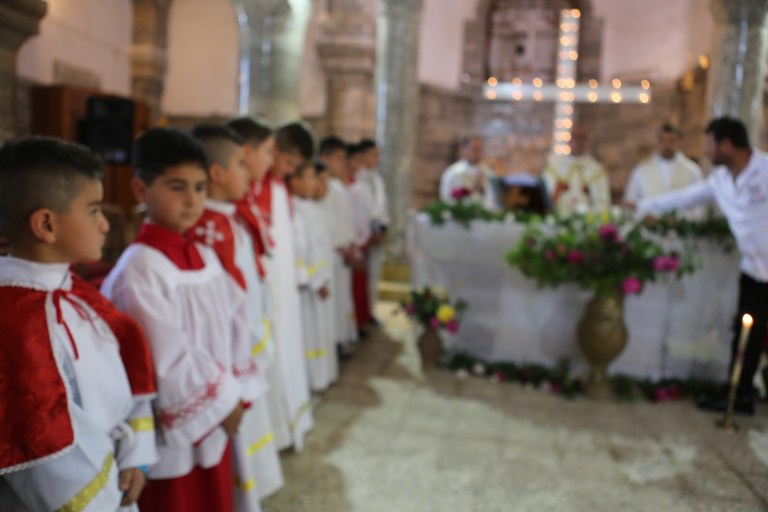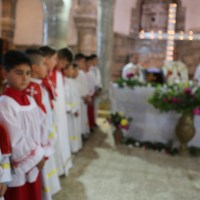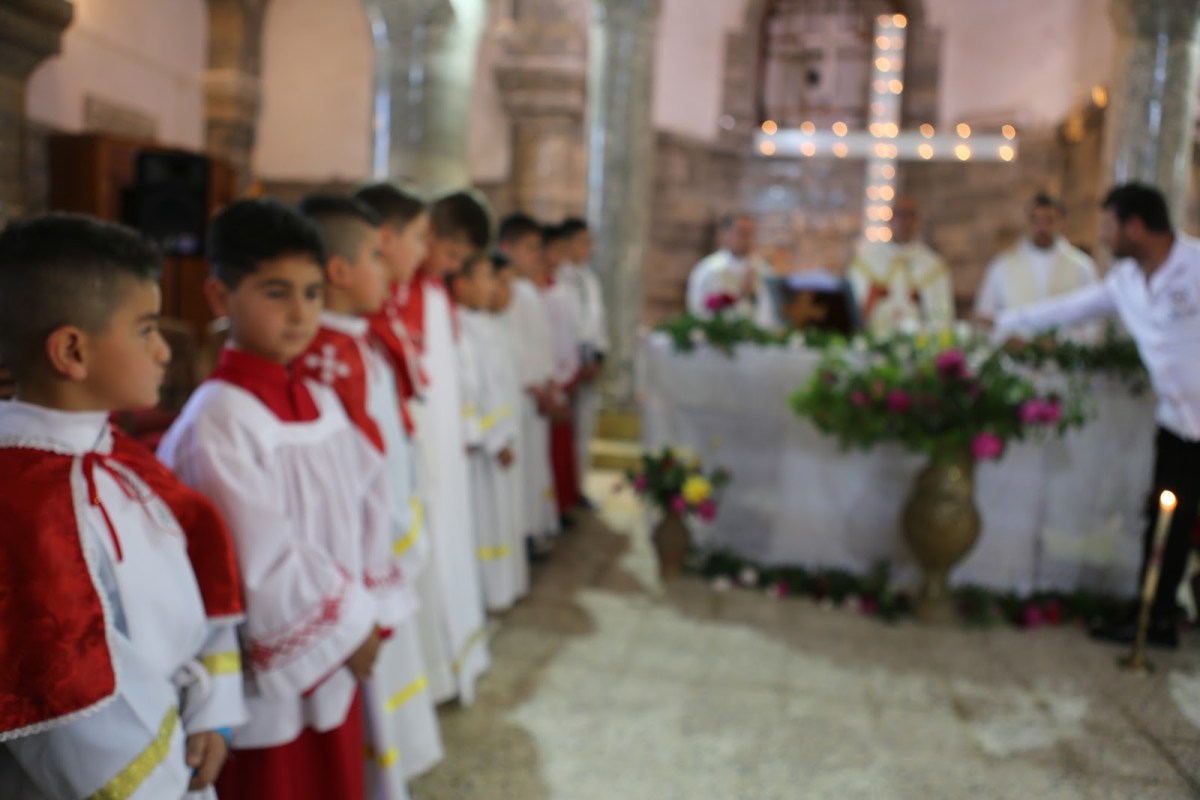There are around three Christian families, comprising a total of 15 people, living in the city of Kut in central Iraq.
Almost everyone else here in the city, with an estimated population of 400,000, is Muslim. Yet a Christian candidate in this month’s elections still managed to get over 5,300 votes.

Ammar Francis Butrus has lived in Kut his whole life. He has good relationships here. He decided to compete in the elections in the hope that his extended social circles could help him get elected. He also chose to run for office with the list headed by Shiite Muslim cleric, Muqtada al-Sadr, whose opinion can sway tens of thousands of Iraqis.
To compete in the elections, Sadr formed a new political party. He joined with a number of left-wing and more liberal parties and formed a whole new alliance named Marching Toward Reform. This is the slogan Sadr adopted three years ago when he and the left-wing parties first came together in anti-corruption demonstrations in 2015.
Butrus explains why he joined: “In the leadership and in the platforms of this list, I found things that fulfilled my ambitions as an Iraqi who wants to help in building a modern and civil state.”
When his neighbors and friends heard that Butrus had been nominated for the list, they also launched their own campaigns to support him on social media and elsewhere. One of the popular Facebook pages supporting Butrus was called Marching with Ammar.

Young locals tried to boost him on social media too. Mohammed Qassim Idam, 22, said he and a number of his friends tried to support Butrus online as much as possible because they saw his candidacy as proof that peaceful coexistence between sects and ethnicities in Iraq is possible.
“His winning that number of votes is proof,” Idam says.
“We need new blood in order to reform Iraqi politics,” adds Saif al-Badri, another blogger from Kut supporting the Christian campaigner.
Butrus said he was walking around Kut on election day and was excited whenever anybody told him they were voting for him. “I am so indebted to those people,” he says, adding that he believes having Muslims vote for a Christian candidate is one way to stem the tide of violence in Iraq.
“Ammar is very respected and beloved by the people of the city,” confirms Ahmad Shehab, a senior politician in Kut. “His candidacy was a sign that there should be no difference between Muslims and Christians or other minorities in Iraq. e trust in Ammar’s integrity and effectiveness in the fight against corruption and injustice and we believe that he will help us achieve our goals, if he wins a seat in parliament.”
There is only one downside to this story: despite his popularity and good intentions, Butrus is unlikely to get a seat in Baghdad’s parliament. He did not compete for one of the quota seats kept aside for Christian politicians, and he doesn’t fit into any other category that would allow him a seat with that number of votes.
But to the young people in Kut who helped Butrus, and to Butrus himself, it doesn’t matter: what matters is what the number of votes a Christian politician got from a Muslim city says about Iraqis’ desire, and willingness, to change.
This post originally appeared on Niqash.


